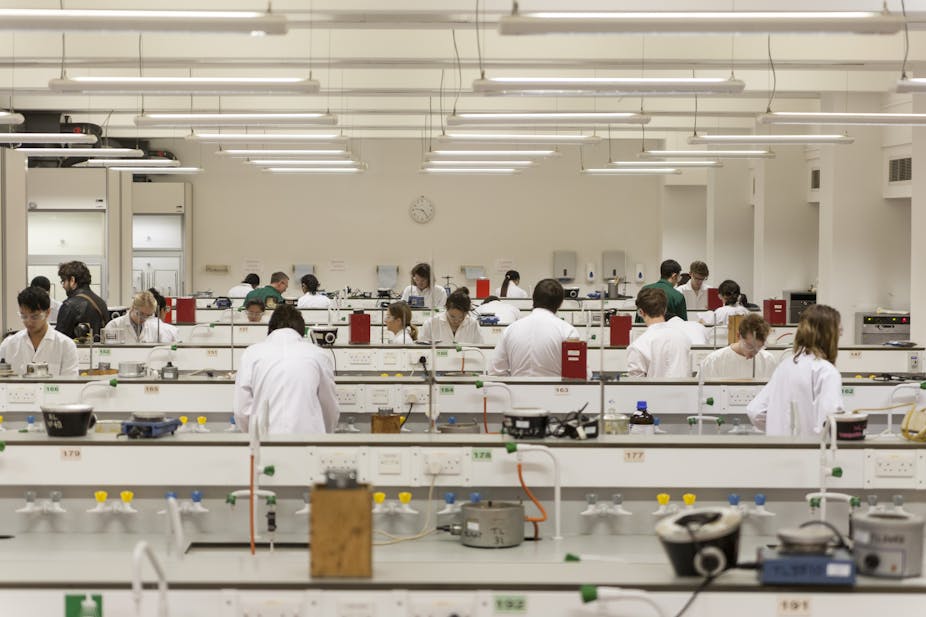Med City was launched to great fanfare last week by the Mayor of London, Boris Johnson. Bringing together the powerhouses of academic and clinical research at UCL, Imperial, Kings, Oxford and Cambridge, it’s a hugely welcome development.
Critics have questioned whether the initiative is really needed or runs the risk of adding additional layers of unnecessary bureaucracy, but Med City has an important role to play in galvanising the talents of the UK’s life science researcher.
Like Tech City, Med City will play an important publicity role – shining a light on London and the southeast of the UK’s burgeoning biomedical research community in order to attract entrepreneurs, investors and global corporations.
The Global Biotech Market
There is no doubt that from a global perspective, biotech is back and booming. Last year, in the US alone there were more than 30 new biotech flotations, raising more than US$2.5bn.
The UK life sciences sector comprises around 5,000 companies, employs 176,000 people and generates £52bn of turnover – around 6% of world market sales. Growth in the sector has been historically strong and is forecast to continue at 8-10% per annum.
Growth has been fuelled by fast-moving discovery research across the world, of which the UK has been at the forefront. Britain’s biotech entrepreneurs have created companies worth hundreds of millions. Recent examples include Biovexx and Spirogen out of UCL, and Circassia, which raised £200m to develop anti-allergy drugs in one of London’s biggest biotech flotations.
But despite the good news stories, it is clear the UK does not realise the full potential of the life scientists for the benefit of the economy. All too often companies just get going and then sell out – often to the benefit of the US.
It seems that when we do start biotech companies, we can’t grow them or keep them here in the UK. The stark truth is that many of the big names in pharmaceuticals have relocated from the UK to other countries. Med City needs to help reverse that trend by fostering a more welcoming environment for them to operate.
Lessons from Tech City
Given the enormous strength of academic research in life and medical sciences, as well as technology, the UK has the capacity to support a cluster in London and the south east. Tech City has lessons to offer it in this regard.
Just like Tech City, Med City should offer a shop window to UK life science. This means an ongoing media campaign to raise awareness of the research being generated and the continued involvement of Boris Johnson as a high profile advocate will be essential.
Tech City works because it brings together the entrepreneurial community in a variety of events, inspiring and encouraging first time entrepreneurs with a can-do attitude. The barriers to starting up are much higher in biotech, so creating a community should be a priority using mechanisms like shared laboratories to foster working between different groups and experts.
The real barrier is finance for long term investment in biotechnology. It seems remarkable that we have been unable to resolve this issue, despite the fact that London is a leading city in financial services. The biotech industry in the UK needs a similar advocate to the Tech City Investment Organisation, which has worked hard to identify and remove barriers to innovation and business growth for the tech community.
Delivering a return
Med City should aim to double the size of the sector – this means another 5,000 successful companies, including a few really big ones. A new culture of enterprise needs to be developed in the research labs of established academics, enabling postgraduate and postdoctoral researchers to start new ventures. The universities they’re part of, too, have a role to play – they have much of the critical technical infrastructure essential to encourage a new generation of biotech entrepreneurs.
To help retain our brightest entrepreneurs, a biotechnology bond should be introduced to solve the problem of investment. This can help stem the tide of young minds who are all too often lured to California or Boston. Biomedical research cannot be done on the cheap and many companies need tens of millions of investment over a long period before they achieve commercial success.
Creating and celebrating high-profile success will help Britain become renowned for being the place to do the business of biotech. For Tech City, the comparison was with Silicon Valley; for Med City it is Boston. We need at least one really high profile multi-billion dollar biotech company to grow from scratch. By facilitating cooperation and access to research in the UK’s “golden triangle” of universities and research centres in the southeast, Med City can speed up this process.
Med City faces many challenges, but with the backing of universities, the extraordinary strength of biomedical research and a growing sense of ambition, there has never been a better time to build the world’s leading centre for biotech. Med City has the potential to bring these ingredients together.

